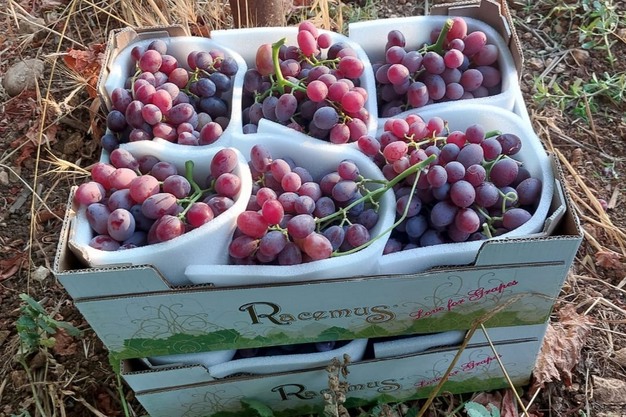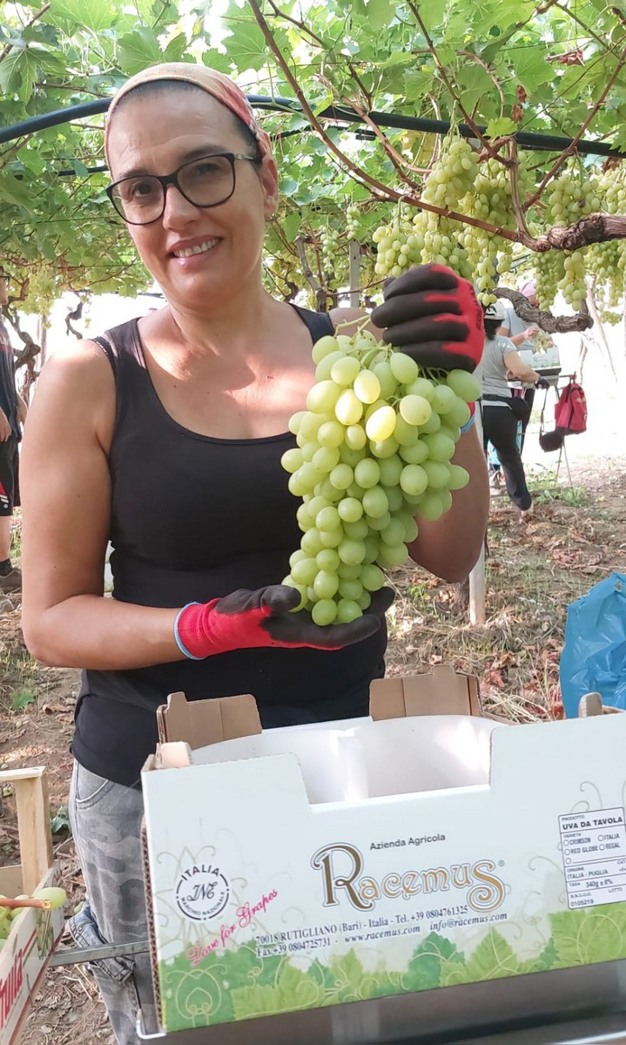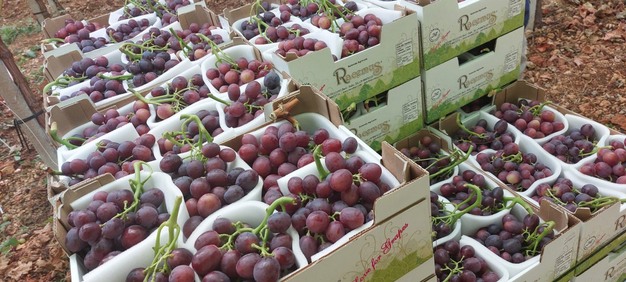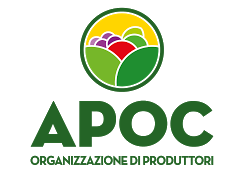"Last year, during the Madrid Fruit Attraction trade fair, I wondered whether the table grape sector should consider this year an exception, given the resurgence in consumption of traditional grapes in the face of a more limited overall production. Today I can say that it was not an exception. If consumers find seeded table grapes on supermarket shelves, this year too, they will buy them, and at medium to high prices." These are the words of Teresa Diomede, owner of the Racemus farm and member and manager of the APOC sales office in Zone 1.

Without fear of contradiction, Diomede says: "Traditional grapes, especially the Italia variety, are once again finding their way onto the Italian and international markets, at prices that are more or less the same as last year. In fact, there is a lot of interest in all types of grapes," she says.
However, she points out that it is inconceivable that everyone will return to growing and selling only seeded varieties, as seedless varieties are still very popular. "For those who stubbornly continue to grow traditional grapes, there is satisfaction at the moment."

Racemus, which specialises in red seeded and seedless grapes, started harvesting about 20 days earlier than usual. "We started with the Crimson and Red Globe varieties and ten days ago with the Italia variety. For both seedless and seeded grapes, we are seeing a drop in production compared to last year. We are noticing a lack of specific weight per bunch, especially for Red Globe, but also for Italia. This is a concern for us growers as many of our costs are per hectare. The lighter bunches are therefore warning us not to accept the low prices being offered."
Like other operators, Diomede is expecting a very short campaign. "If the weather continues to be dry and hot in southern Apulia and the markets maintain the current level of interest, we could record the shortest season in history. Whether this is a good or a bad thing, it is difficult to say."
In addition, climate change is increasingly forcing Apulian grapes to be harvested earlier, overlapping with the Sicilian campaign. "This year we have seen the full extent of this, as the dates coincided more than in previous years, creating an unfavourable commercial situation for both origins," explains Diomede.

With regard to reports of thefts in the countryside, the businesswoman is of the opinion that this is unfortunately the order of the day. "There is no such thing as a wine season without thefts. They increase from time to time and it is not just about stealing bunches of grapes or iron or copper, for example, but also damaging artesian wells and field structures. It is an ongoing battle that we are trying to win, thanks to the vigilance consortia and by uniting the producers. In fact, we want the harvest to be a joyful time and not a time of patrolling our grapes before they are harvested," she says.
Finally, Diomede highlights at least two other problems that seem to cause concern: "The monk parakeet, which is greedy for grapes as well as almonds, and wild boars, which are a danger to those working in the fields."

For more information:
Teresa Diomede
Azienda Agricola Racemus
Viale del Commercio Lotto 17/19
70018 Rutigliano (BA) - Italy
Tel: +39 084761325
Email: info@racemus.com
www.racemus.com
 APOC
APOC
Via R. Wagner K1 (P.co Arbostella)
84131 Salerno - Italy
Tel.: +39 (0)89 331758
www.apocsalerno.it
